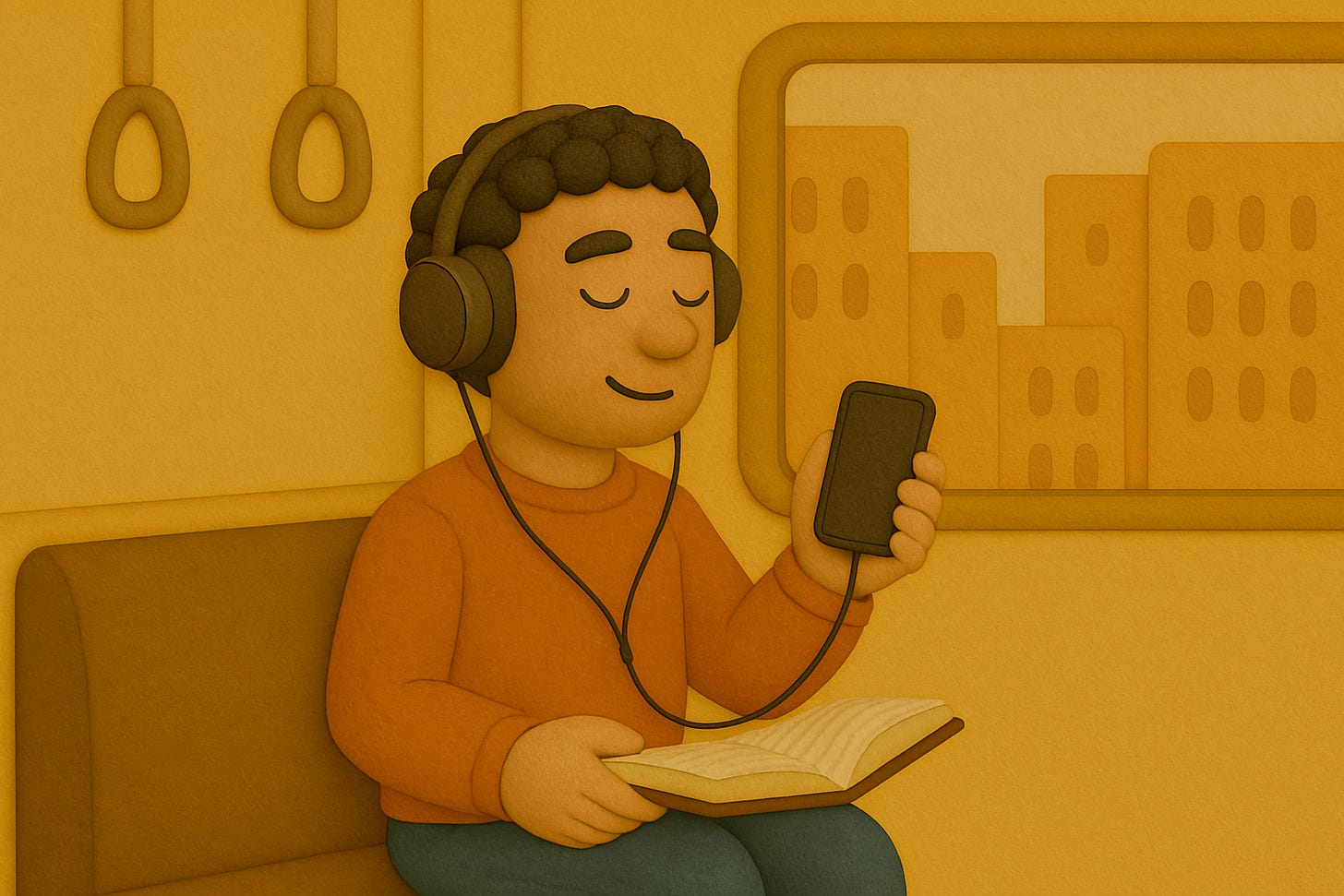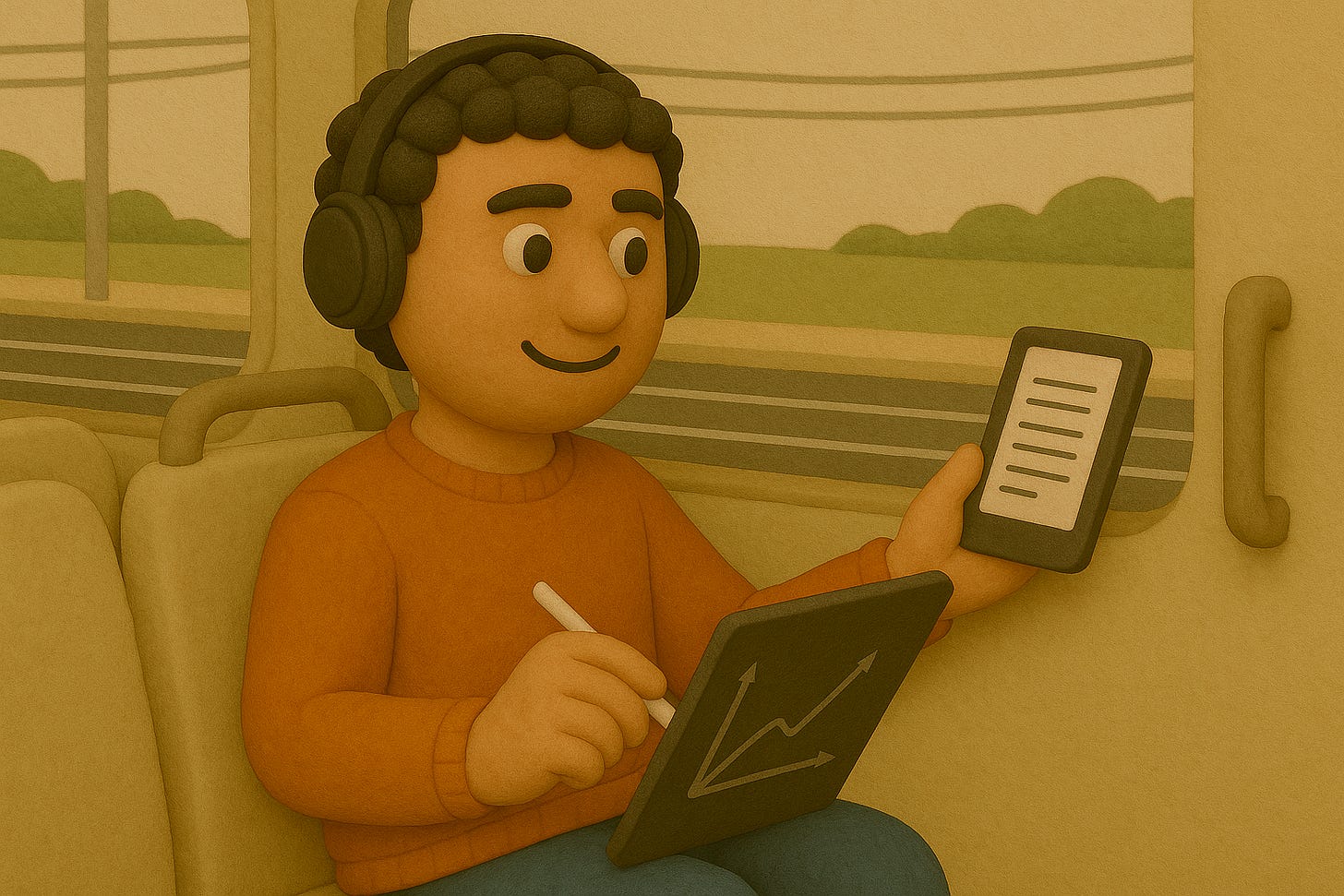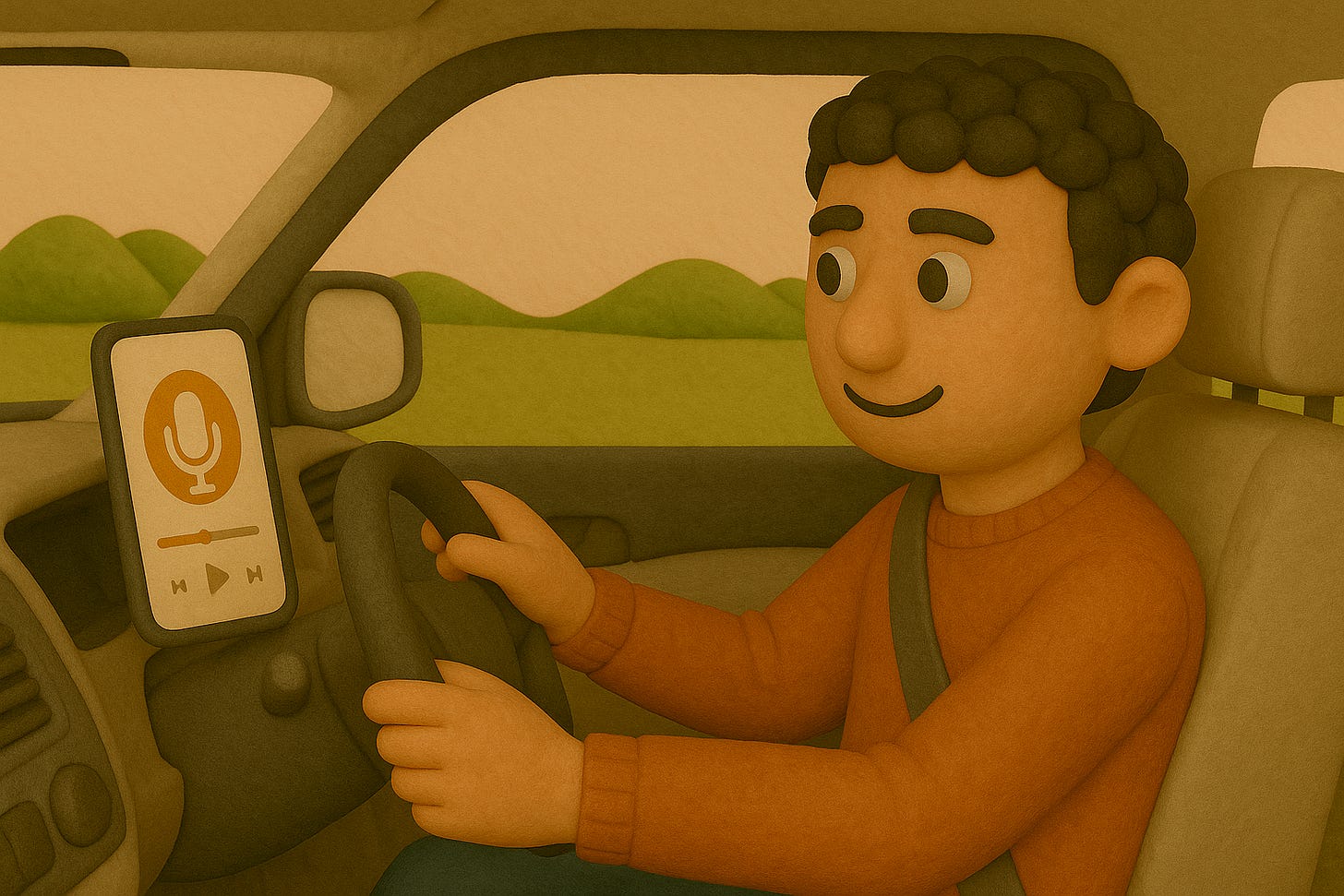Stop Wasting Your Commute: How to Turn Dead Time Into Focus Time
How To Get Back 300+ Hours Every Year
Commuting is an inevitable part of many people’s daily routines.
Whether you’re driving, taking the train, or using public transport, the time spent traveling to and from work can add up significantly over weeks, months, and even years.
However, with the right strategies, you can transform this “lost” time into an opportunity for productivity and personal growth.
When I started working full-time, I had to commute over an hour each way. Living in a remote town meant that every workday came with two hours of potential waste. That’s time that could easily slip away to scrolling or zoning out.
At first, I hated it.
But then I realized: if I optimized those two hours, I could buy back ten hours per week — 500+ hours per year — for learning, focus, and personal growth.
That’s equivalent to more than 12 extra workweeks every year.
The Hidden Cost of a Passive Commute
Many people view commuting as a necessary evil; a time-consuming chore that eats into their day.
However, this mindset can lead to wasted hours that could otherwise be used productively. The key is to approach your commute with intentionality. By planning ahead and utilizing the right tools, you can turn your travel time into a valuable resource for learning, skill-building, and personal development.
The Two Types of Commuters
There are two main categories:
Active commuters: those using public transit, planes, or ride-shares.
Hands-on commuters: those driving themselves.
Each type requires a different productivity strategy.
Let’s start with the first.
1. Turning Public Transit Into a Mobile Deep-Work Zone
If you take the train or bus, you have an underrated advantage: free hands and (usually) internet.
Here are some strategies to make the most of your time:
a) Knowledge Work and Active Studying
This could involve reviewing course materials, practicing problem-solving, or even learning a new language.
Here’s how to make it work:
Use a tablet or iPad with a stylus if your work involves diagrams or note-taking.
I use mine for math and computer science topics, since writing by hand boosts memory retention.Pre-download everything: PDFs, slides, video lectures, or notes. Try not to rely on internet connection. You should be able to keep going if internet fails.
Noise-canceling earbuds are really helpful. These can help you focus by blocking out distractions, especially in noisy environments like trains or buses.
Do “active” learning: Instead of passive re-reading incorporate active learning techniques for better efficiency and retention. Even short, focused study sessions during your commute can yield significant results over time.
I wrote a detailed post about this topic here.
For instance, I review Anki flashcards or Japanese vocab during my 30-minute train ride.
b) Reading and Expanding Knowledge
Reading is one of the highest-return activities you can engage in during your commute.
Whether you prefer physical books or a Kindle, reading allows you to expand your knowledge on topics that interest you or are relevant to your career.
2. If You’re Driving: Learn With Your Ears
If you’re driving, your options are more limited since your hands and eyes need to be focused on the road. However, there are still plenty of ways to make your commute productive:
Here’s my setup:
Podcasts and audiobooks only. Entertainment comes later.
Build a curated queue on Spotify or YouTube on the weekend. So when you get in the car, you just press play.
No fiddling with your phone.Prioritize long-form content (30+ minutes). It eliminates decision fatigue and encourages deeper thought.
Focus on material that compounds:
Skill development (communication, business, coding, investing)
Psychology, philosophy, and biographies
Language learning (for me: Japanese listening immersion)
Over time, this habit compounds dramatically.
By listening to audiobooks or podcasts consistently, you can easily get through a book a month or even two if you commute daily. Over a year, this adds up to 24+ audiobooks.
“I don’t have the time to read” is no excuse. Use your ears.
Design Your Commuting System
The key isn’t just to do something productive, it’s to make it frictionless.
Here’s how to engineer that:
Automate downloads: Sync your study materials every Sunday.
Use cloud storage: Keep notes synced between laptop, tablet, and phone.
Plan one focus per trip: Decide beforehand what you’ll learn.
(“Today: 20 Anki cards + review lecture 3.”)Set recurring tasks: Use your calendar or reminders app to make the system automatic.
Batch prep your listening queue: Your future self will thank you on Monday morning.
Once you’ve set it up, the system runs itself.
The more automatic it becomes, the more consistent you’ll be, and the easier it’ll feel.
Shift the Mindset
Instead of viewing your commute as a disadvantage, reframe it as a designated time block for productivity.
You get to take advantage of Parkinson’s law without even noticing it.
This mindset shift can help you make the most of your travel time, turning it into an opportunity for focused work or learning. View it like a non-negotiable calender event for productive time.
When I work from home, I often actually get less done.
Why? No built-in rhythm. No forced time block.
But when I commute, I know: train = practice, car = learn.
That structure compounds over time.
Takeaways
Reframe your commute from dead time to productive time.
Prepare your tools: headphones, downloads, playlists, and materials.
Public transit = hands-on learning; driving = ears-only learning.
Stack consistency: one commute at a time, five days a week, equals 500+ extra learning hours a year.
Be intentional: even rest can be optimized if you choose it consciously.
If you apply this mindset for a week, you’ll notice the difference.
Because the truth is:
You don’t need more time. You just need to use the time you already have.
Thanks for reading!
See you next Saturday.
— Tobi
💡 Question: How do you use your commute time?






how about stop commuting.
Great insight! Love a great strategy to maximize the moment.